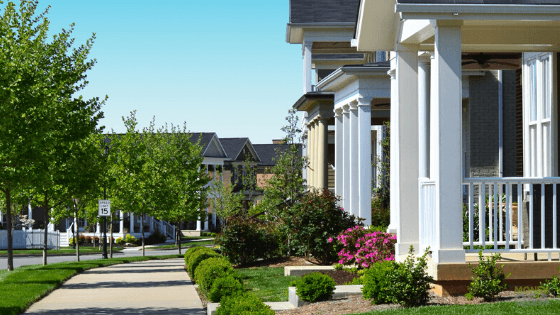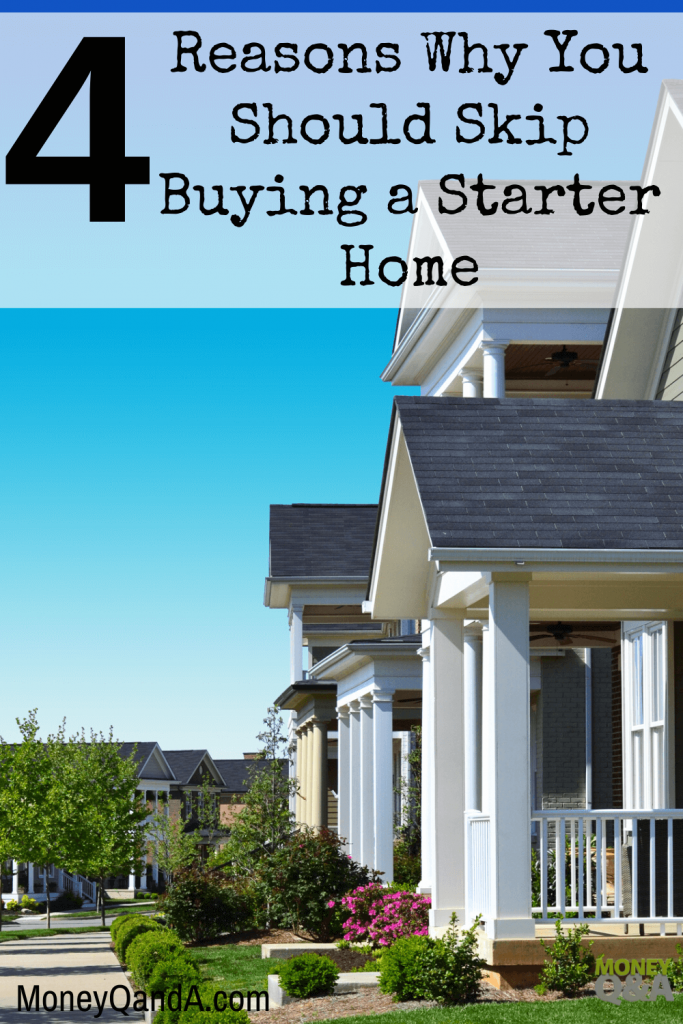
In the past, young adults were encouraged to buy a starter home before moving on to bigger and better homes for themselves and their growing families. Nowadays, it seems that starter homes are no longer than good investments they once were, due to a variety of factors ranging from rapid appreciation rates, consumer demand overwhelming supply, and changing family/mobility patterns among 20/30-somethings.
Like many people, you likely grew up with the understanding that buying a home is an essential ingredient to achieving the American Dream – but does racing to buy a smaller, cheaper home really make more sense than waiting to buy your dream home a few years down the line? Contemporary economists suggest starter homes are no longer as desirable or beneficial for career-driven adults and young families as they used to be, which means you may want to reconsider your timeline for buying a home sooner rather than later.
If you’ve planned to buy a starter home before moving on to a bigger home in a nicer area with better schools and a larger backyard, then here are four critical reasons why you should consider waiting instead:
Starter Homes Appreciate More Quickly
Demand for starter homes is rapidly outpacing the present supply, which has led to drastically higher appreciation rates in comparison to mid-market and expensive homes. For example, the lowest median household income in the bottom 10% of neighborhoods around the U.S. have seen a 7.6% increase in the average home price between 2011 and 2018, compared to just 5.2% increases in average home prices for the top median income neighborhoods in the same timeframe.
Just as new cars tend to depreciate more quickly than used cars (and thus, buying used vehicles makes much more financial sense), you should skip buying a starter home because you can likely buy a bigger, better home at a price that isn’t so heavily impacted by voracious consumer demand and jaw-dropping appreciation rates.
Waste Less Time on Home Hunting and Bidding Wars
If you only plan to live in your starter home for a few years, then why go to all the effort of searching for a home, visiting open houses, getting bogged down in bidding wars and piles of paperwork when you could hold off another 2-4 years or so and buy a home you’ll be living in for the indefinite future instead?
So many resources – time, money, energy – go into the home-buying process (let alone the fixing up parts of homeownership) that it’s typically not worth it unless you plan to stay in the home for 7-8+ years or so. Additionally, the enormous consumer demand for starter homes means that many of these homes get locked in intense bidding wars, where you may end up paying well over the asking price just so you can beat out other interested buyers.
Save More Money for a Down Payment
Homeownership is typically a better option than renting, but if you plan to move around a bit or you know how much space you’ll need in the future for your kids, pets, etc. then it would likely be better to continue renting and saving money for a down payment on a home instead of hoping a starter home will appreciate enough in value to cover the down payment on your next home.
There’s no guarantee your starter home will rapidly rise in value within the next few years – in fact, the 100 economists and housing experts interviewed by Zillow believe a recession is coming – so a safer bet would be to keep contributing to your home savings fund instead.

Achieve Career and Family Stability
A final reason why you should hold off on the starter home idea doesn’t necessarily involve money; it involves your professional goals and familial aspirations, which undoubtedly influence our home-buying decisions at every stage in our lives.
If you know you want to have several kids within the next few years, then buying a small, 3-bedroom home with 1.5 baths makes no sense, unless you’re fine with overcrowding. If you are in a career track that may require a few job relocations over the next few years, then why go through the hassle of buying and selling a home multiple times when you could enjoy the flexibility of renting while saving up for a home more suitable for your long-term needs?
Waiting until your career has settled into a predictable track and you’ve established your family (or have solidified plans for starting a family) allows you to find the right home in a good area (proximal to both schools and your work) without wasting countless time and money on going through the home-buying and selling processes several times beforehand.
Starter Home: Yay or Nay?
Buying a starter home rarely makes sense anymore, unless you have a strong idea of what your family and career will be in the future (e.g., you know you don’t want to have children or your job will keep you in the same geographic location for most of your career).
Buying a home is unquestionably a big component of the American Dream, but expediting your homeownership dreams for the wrong home you’ll end up selling within a few years likely isn’t worth the hassle you’d go through to buy it in the first place.

